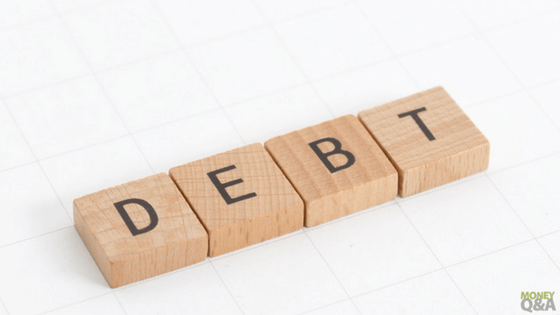
There is no skirting around the issue; debt can ruin your life and the lives of those you are closest to. It can be easy for debt to spiral out of control; however, you can regain control.
If you’ve struggled to manage your debts, you need to make decisive changes to handle your finances. Here are ten ways that you can manage your debt so that you can eventually be debt-free.
1. Know How Much You Owe
If you have several debts, it can be easy to lose track of how much you owe exactly. It may have gotten to the point where you ignore bank statements and bills as they drop through your letterbox.
Avoiding the problem is only going to make matters worse.
Look at each one of your debts. Note down how much you still owe, what the interest rate is, and how long it will take you to pay it off at your current rate.
2. Know How Much You’re Spending
The next step in your debt management program should be to examine how much you spend out each month compared to how much you’ve got coming in and manage your debt.
Much of your monthly expenditure will be essential; however, a considerable amount won’t be.
Identify the essential and non-essential spending and highlight these.
3. Create a Spending Budget
Once you’ve worked out how much you are currently spending, set yourself a spending budget based on the ideal outgoings. This can help you manage your debt.
You should set budgets for specific things in your life, such as your grocery shopping. Once you have a budget for your grocery shopping, you should start to create specific shopping lists. By using a set shopping list, you’ll be able to keep to a stricter budget.
4. Sell Unwanted Items
If you have unwanted items in your home, turn them into cash and use that money to pay off your debts.
List your items on selling sites such as Facebook Marketplace or eBay. This is an easy way to manage your debt.
5. Cancel Your Subscriptions
If you’re spending money on things like gym memberships that you’re not using, or you have subscriptions to gaming sites or streaming services that you don’t get the full benefit from, cancel them.
Use any spare money that you get from canceling these services to use repaying your debts.
6. Consolidate Your debt
It can be hard to manage all of your loans and credit cards with debt in several places. To make your debt more manageable and manage your debt, you might want to think about consolidating all your cards and loans into one single debt.
This will give you a final end date and make it easier to pay each month.
7. Switch Energy Providers
If you have been with your energy supplier for a few years, you might be paying too much. Shop around and get quotes from different providers.
It would help if you also did the same with other services in your homes, such as the phone and the internet.
8. Learn to Be Less Impulsive
If spending impulsively has been a habit that has got you into debt, then it is one that you need to break and manage your debt.
Try and get into the habit of walking away from items and thinking about purchases before you make them. If you still want something a few days later, then you can think about buying it, providing you can afford it. If you can’t, you should save it.
9. Talk to the Professionals
If your debt is too big for you to contend with on your own, get support. There may be local debt charities that are able to help you in your area.
If your debt has passed the point where you can do anything about it, you should look at making a consumer proposal in this option much of your debts could be written off without the need for you to file for bankruptcy.
10. Cut Up Your Credit Cards
Finally, cut up your credit cards. If you are in a position to close down a credit card account because you have cleared the debt, do not hesitate to do so.
If you still owe money on your card, make it so you cannot use it anymore.
Stay Debt Free
Once you’ve cleared your debt, your next challenge is to learn to live a debt-free life.
Learn from all of the changes that you’ve made in the way that you spend money. Avoid making impulsive decisions when buying anything. And, above all else, do your best to avoid taking on debt and manage your debt on a whim.
